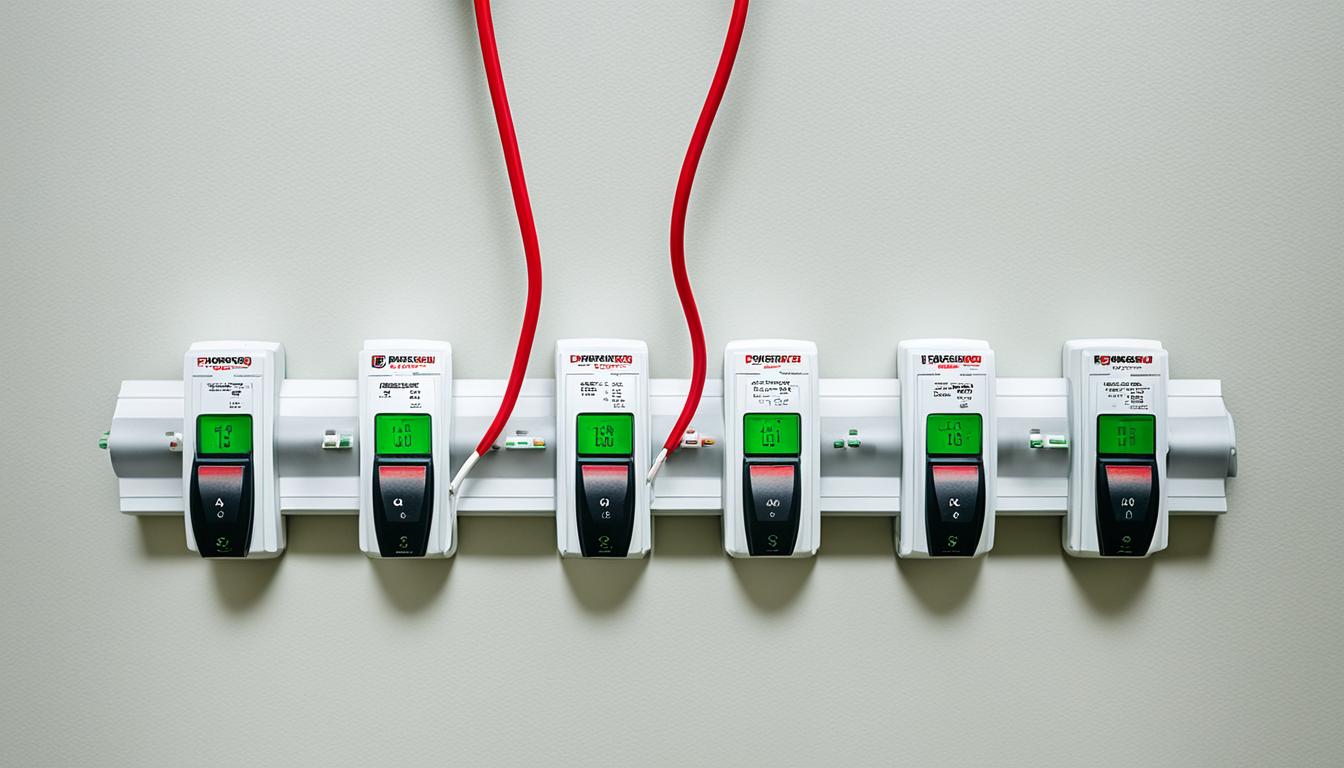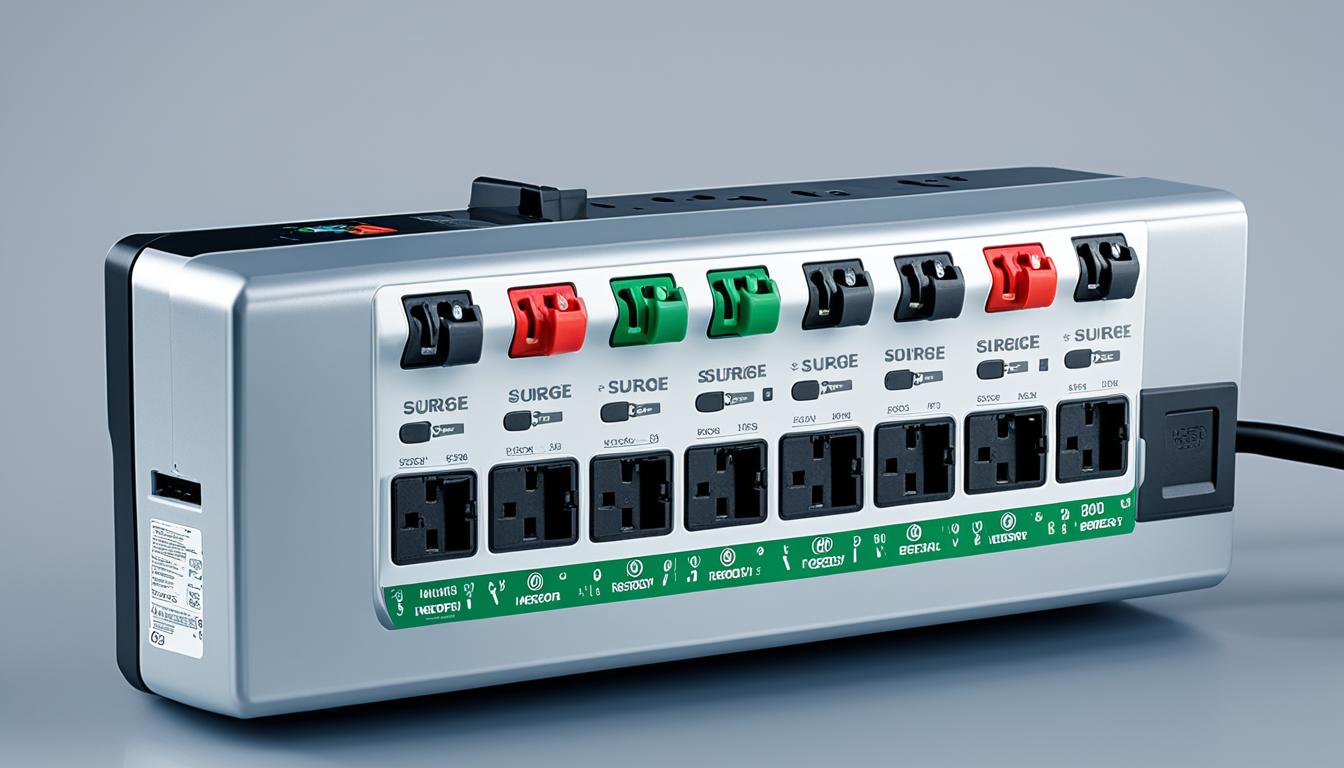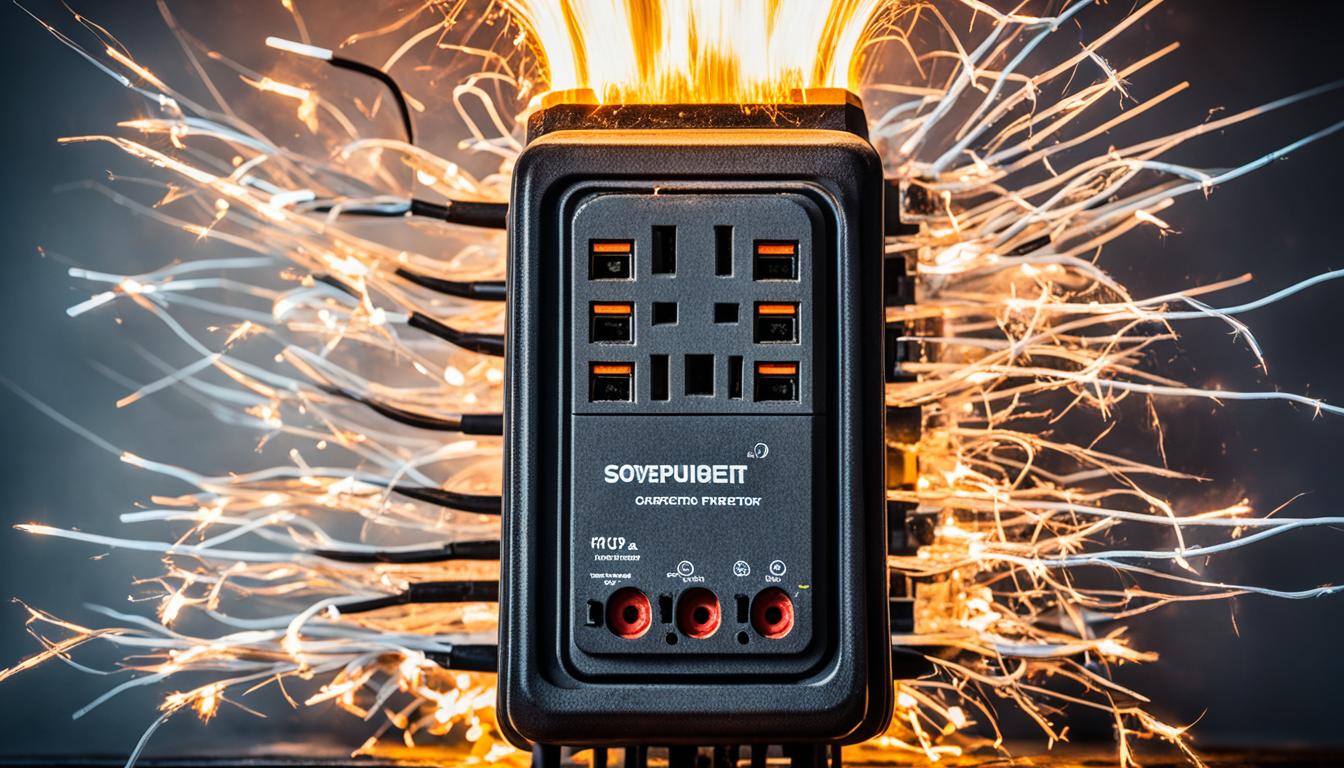extensioncords.site and its partners may earn a commission if you purchase a product through one of our links
When it comes to electrical safety, it’s crucial to understand the potential risks and hazards that can arise from connecting heaters to extension cords. While it may seem convenient to plug a heater into an extension cord, it can actually pose serious dangers that can lead to electric shock, overheating, and even fires.
Before you consider using an extension cord with your heater, it’s important to be aware of the guidelines and precautions that can help ensure safe operation. By following these recommendations, you can mitigate the risks associated with using heaters and extension cords simultaneously.
Key Takeaways:
- Connecting heaters to extension cords can pose serious safety hazards such as electric shock and fire.
- To ensure safe operation, it is crucial to follow guidelines and precautions when using heaters and extension cords.
- Avoid using extension cords with heaters whenever possible and plug heaters directly into a wall outlet.
- Ensure that your heater is UL, ETL, or CSA certified and has an automatic shut-off feature if it tips over.
- Proper placement of heaters and regular maintenance checks are essential for preventing accidents and ensuring electrical safety.
When it comes to electrical safety, taking the necessary precautions can make all the difference. By understanding the potential risks and hazards associated with connecting heaters to extension cords, you can make informed decisions that prioritize the safety of your home and loved ones.
Space Heater Safety Tips
When using a space heater, it is crucial to prioritize safety to protect yourself and your home. Follow these guidelines to ensure safe operation and prevent accidents:
Choose Certified Heaters
When purchasing a space heater, look for models that are certified by reputable organizations such as UL, ETL, or CSA. These certifications ensure that the heater meets important safety standards.
Automatic Shut-off Feature
Avoid heaters that lack an automatic shut-off feature. This safety mechanism ensures that if the space heater tips over, it will automatically turn off to prevent fires or other hazards.
Never Leave Unattended
Always stay vigilant when your space heater is in use. Never leave it unattended, especially when there are children or pets around.
Maintain Proper Clearance
Place the space heater at least 3 feet away from anything that can catch fire, such as furniture, curtains, or bedding. This distance reduces the risk of fire and provides proper airflow for effective heat distribution.
Avoid Extension Cords
Plug your space heater directly into a wall outlet and avoid using extension cords or power strips. Using these can exceed the power cord ratings and cause overheating, leading to fires or electrical hazards.
Read and Follow the Electrical Code
Keep yourself informed about the electrical code regulations in your area. It is essential to adhere to these guidelines to ensure the safe use of space heaters.
By following these space heater safety tips, you can enjoy the warmth and comfort they provide without compromising your safety or that of your loved ones.
| Space Heater Safety Tips |
|---|
| Choose certified heaters |
| Use heaters with an automatic shut-off feature |
| Never leave a space heater unattended |
| Maintain at least 3 feet of clearance around the heater |
| Avoid using extension cords or power strips |
| Read and follow the electrical code |
Extension Cord Safety
When it comes to using extension cords, safety should be your top priority. Extension cords are designed for temporary use and should not be relied upon as a long-term solution for extending your electrical system. The Electrical Safety Foundation International (ESFI) provides important guidelines and precautions to follow for extension cord safety.
- Choosing the Right Extension Cord: It is crucial to use the appropriate extension cord for your appliances. Make sure the extension cord is rated for the products you are plugging in and marked for indoor or outdoor use. Using the wrong type of extension cord can lead to electrical overload and increase the risk of fire.
- Avoid Overloading Extension Cords: Overloading an extension cord can cause it to overheat and potentially start a fire. Make sure you are aware of the wattage limit specified by the appliance or tool you are using. If you have multiple devices to plug in, consider using multiple outlets or a power strip with a built-in circuit breaker.
- Inspect for Damage: Before using an extension cord, always check for any signs of damage such as frayed wires or exposed conductors. Using a damaged cord can expose you to the risk of electric shock. If you find any damage, it’s important to replace the cord immediately.
- Avoid Wet or Snowy Conditions: Extension cords should never be used in wet or snowy conditions. Water and electricity are a dangerous combination and can lead to electric shock or even electrocution. If you need to use an extension cord outdoors, make sure it is specifically designed for outdoor use.
- Reduce Reliance on Extension Cords: Heavy reliance on extension cords can be a sign that you need additional outlets in your space. If you find yourself using multiple extension cords on a regular basis, it’s a good idea to consult a professional electrician to install additional outlets to meet your needs.
- Proper Usage and Placement: It’s important to use extension cords as intended, avoiding any modifications or tampering. Do not daisy-chain multiple extension cords together, as it can lead to electrical overload. When using an extension cord, ensure it is laid out in a manner that avoids tripping hazards and is not stretched or pinched in any way.
Following these extension cord safety guidelines will help ensure the safe and proper use of your electrical devices and reduce the risk of electrical accidents and fires.
Extension Cord Safety Tips
Here are some additional extension cord safety tips to keep in mind:
- Always unplug an extension cord by pulling on the plug, not the cord itself.
- Keep extension cords away from heat sources and flammable materials.
- If you need a long-term solution for extending your electrical system, consider consulting a professional electrician to install additional outlets.
Extension Cord Safety Specifications
Extension cords come in various sizes and specifications. When purchasing an extension cord, consider factors such as length, wire gauge, and amp rating. The table below provides some common extension cord specifications to help guide your selection:
| Wire Gauge | Maximum Amp Rating | Recommended Use |
|---|---|---|
| 18 AWG | 10 Amps | Light-duty appliances, lamps, and electronics |
| 16 AWG | 13 Amps | General household use, power tools |
| 14 AWG | 15 Amps | Heavy-duty power tools, larger appliances |
| 12 AWG | 20 Amps | High-powered tools and equipment |
Choosing the right extension cord specifications will ensure safe and efficient power delivery to your devices and help prevent electrical overload.
Dos and Don’ts of Space Heaters
When it comes to using space heaters, following proper guidelines and safety measures is essential. Whether you’re looking to optimize space heater placement or ensure electrical safety, here are some important dos and don’ts to keep in mind:
“Placing the space heater on the floor, rather than on furniture, is the safest option.”
First and foremost, always place your space heater on the floor. Placing it on furniture or other elevated surfaces can pose a risk of tipping over and causing accidents. Keep your space heater on a level and stable surface to reduce the chances of it falling.
“Avoid using space heaters in wet or moist areas, such as bathrooms.”
Additionally, it’s crucial to note that space heaters should never be used in wet or moist areas, such as bathrooms. Water and electricity don’t mix, and using a space heater in a damp environment can result in electrical hazards and potential accidents.
“Maintain a safe distance of at least three feet between the space heater and walls, furniture, or any objects that can catch fire.”
Always maintain a safe distance between your space heater and any flammable objects. It’s recommended to keep at least three feet of clearance between the heater and walls, furniture, curtains, or any other items that can easily catch fire. This will help prevent the risk of accidental ignition.
“Avoid placing space heater cords on top of rugs or floors.”
Ensure that the cords of your space heater are not placed on top of rugs or floors. Placing cords on rugs or carpets can introduce the risk of overheating and potential fire hazards. Keep the cords clear of any flammable materials and direct them away from high traffic areas.
“Try to avoid using extension cords unless absolutely necessary.”
While using space heaters, it is advised to avoid using extension cords whenever possible. Directly plugging the space heater into a dedicated wall outlet is safer than relying on extension cords. If you must use an extension cord, ensure it is the correct type and rated for the power requirements of your space heater.
“Regularly check the temperature of the cord and plug, and replace if they feel hot.”
Regularly inspecting the temperature of your space heater’s cord and plug is essential. If you notice that the cord or plug feels excessively hot, discontinue use immediately and have them replaced. This can help prevent overheating, potential electrical malfunctions, and reduce the risk of fire.
“If your space heater consistently trips a ground fault circuit interrupter (GFCI), have it checked by a professional.”
If your space heater consistently trips a ground fault circuit interrupter (GFCI), it may indicate an electrical issue. In such cases, it is recommended to have your space heater checked by a professional electrician. Ignoring GFCI trips can lead to electrical hazards and pose a risk to your safety.
| Dos | Don’ts |
|---|---|
| Place space heaters on the floor | Use space heaters on furniture |
| Maintain a three-foot distance from flammable objects | Allow space heaters to come in contact with curtains or other flammable items |
| Directly plug space heaters into wall outlets | Use extension cords unless absolutely necessary |
| Regularly check the temperature of cords and plugs | Ignore hot cords or plugs |
| Have space heaters checked if they trip GFCIs | Ignore consistent GFCI trips |
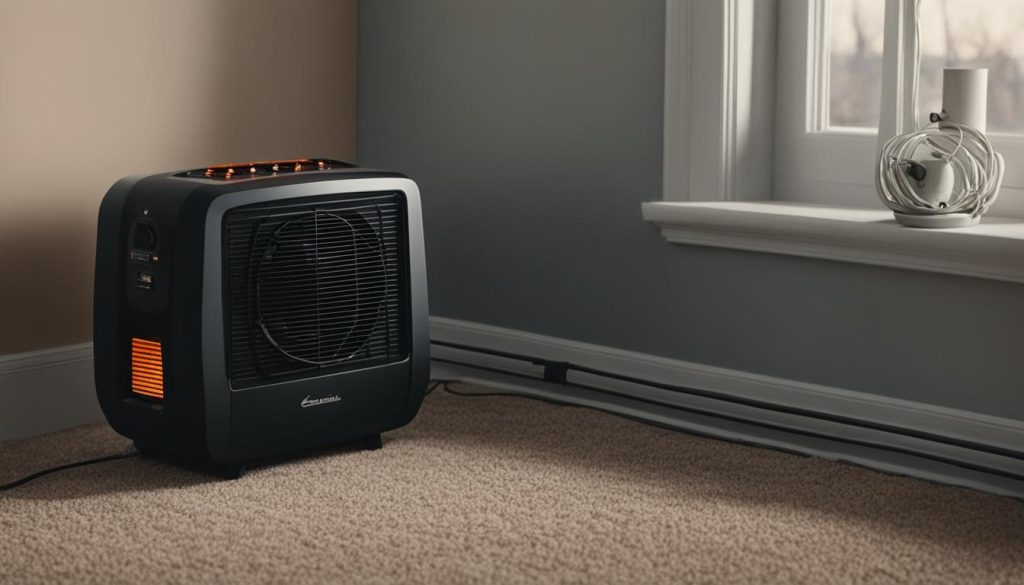
Suggestions on All Space Heaters
When it comes to purchasing a space heater, it’s essential to prioritize safety and choose the right one for your needs. Here are some recommendations and precautions to consider:
- Opt for a heater with a guard: To minimize the risk of accidents, select a space heater that comes with a guard around the flame area or heating coil. This prevents accidental contact and reduces the chances of burns or injuries.
- Look for certification: Ensure that the space heater you choose has been listed and labeled by a nationally recognized testing company. This certification ensures that the heater meets important safety standards, providing you with peace of mind while operating it.
- Read and follow operating instructions: Take the time to thoroughly read and understand the manufacturer’s operating instructions. Following these instructions will help you use the space heater correctly and safely. Additionally, keep the owner’s manual readily available for future reference.
- Avoid using space heaters overnight in sleeping rooms: For your safety, it is advised not to use space heaters overnight in sleeping rooms. This precaution helps to prevent potential risks, such as the accumulation of carbon monoxide or the risk of uncontrolled burning.
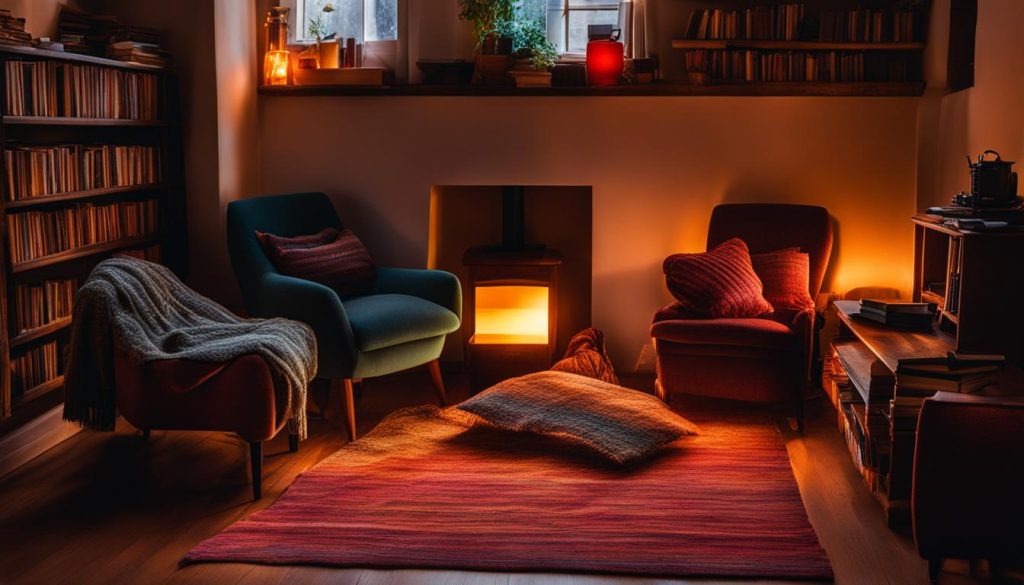
Safety Precautions and Consumer Reports Testing
In order to ensure the safety of your space heater usage, it is important to follow certain safety precautions and consider the results of Consumer Reports testing. Consumer Reports conducts thorough evaluations of various space heaters, taking into account factors such as heat efficiency, surface temperature, and the presence of an automatic shut-off feature.
By choosing a space heater that meets the safety criteria identified by Consumer Reports, you can have peace of mind knowing that it has been thoroughly tested for optimal performance and safety. Look for heaters that provide efficient heat output while maintaining a safe temperature to the touch.
Another crucial safety feature to consider is automatic shut-off. This function ensures that the heater will automatically turn off if it tips over or if it detects excessive heat, reducing the risk of accidents and fire hazards. Make sure to select a space heater that includes this important safety feature.
Additionally, it is essential to keep your space heater at a safe distance from flammable materials such as curtains, furniture, and bedding. This will help prevent potential fire hazards. Never leave your space heater unattended while it is in operation to minimize the risk of accidents.
FAQ
Is it safe to connect heaters to extension cords?
It is not recommended to connect heaters to extension cords. This can pose potential risks and hazards. It is important to plug space heaters directly into a wall outlet to ensure safe operation.
What are some space heater safety tips?
It is crucial to follow safety guidelines when using space heaters. These include using UL, ETL, or CSA certified heaters with automatic shut-off features, never leaving them unattended, and placing them at least 3 feet away from anything that can burn. It is also important to avoid using extension cords or power strips with space heaters.
What should I consider for extension cord safety?
Extension cords should be used as a temporary solution and not for long-term extension of your electrical system. It is important to use the appropriate extension cord for your appliances, avoid overloading them, and not use them in wet or snowy conditions. Following the wattage limit specified by the appliance or tool is also crucial.
What are the dos and don’ts of using space heaters?
Dos include placing space heaters on the floor, at least 3 feet away from walls and flammable materials, and ensuring a snug fit of the plug in the outlet. Don’ts include placing them on furniture, using them in wet areas, and using damaged or hot cords. Space heaters tripping a ground fault circuit interrupter (GFCI) should be checked by a professional.
What should I know about all space heaters?
When purchasing a space heater, it is recommended to choose one with a guard around the heating area and to select heaters listed and labeled by a nationally recognized testing company. Reading and following the manufacturer’s operating instructions is also important.
What are the safety precautions and Consumer Reports testing for space heaters?
It is crucial to follow safety precautions and consider the results of Consumer Reports testing when using space heaters. These precautions include keeping space heaters at a safe distance from flammable materials and not leaving them unattended. Consumer Reports evaluates space heaters based on heat efficiency, touch temperature, and the presence of an automatic shut-off feature.
